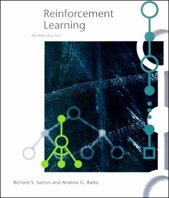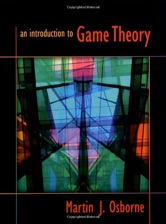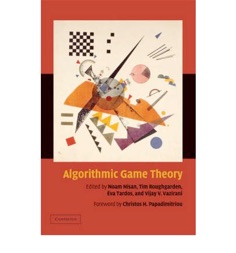Learning dynamics
INFO-F-409

Learning dynamics
INFO-F-409
•Objectives
•Summary
•Staff
•Schedule
•Practical information
•Reference works
•Syllabus
Prof. T. Lenaerts (ULB), Prof. Jelena Grujic and Prof. A. Nowé (VUB)
2010 - 2020


Syllabus and Assignments
Summary
Staff
Prof. Jelena Grujic,
Assistants :Elias Fernandez, Roxana Radulescu
Course slides as well as the assignments are made available on UV for the ULB students and Canvas for the VUB students.
Course objectives
The aim of the course is to introduce the students to the field of learning in individual agents and learning in populations of agents and to prepare them for a Master thesis in these research areas.
He or she will learn the basic principles of both domains, the mathematical and computational methods and the typical problems they are trying to solve.
The students will also obtain a basic understanding of (evolutionary) game theory and complex networks which will allow them to understand the standard literature in that field and the relevance of this domain to learning in general.
The students will obtain the skills to address independently problems within these fields.
In addition, they will be capable of presenting their work to an audience of specialists and non-specialists.
The course addresses three general areas of research : individual-based learning, social learning in populations and complex networks
The first part focusses on learning through experience, of which reinforcement learning is the standard example. We start from a single agent setting and introduce reinforcement learning as a model free approach to dynamic programming. Then we have a look at the interplay of multiple learning agents in the same environment. For this purpose and for the following part on evolutionary dynamics, basic concepts of Game Theory are introduced.
The second part provides an introduction to the principles of learning by imitation, modeled through evolutionary dynamics. It will explain what evolution is and how games can be used to model interactions between individuals in a population. It will show how these models can be used to study the evolution of cooperation in social dilemmas, the evolution of conventions like language or even the dynamics of cancer.
The third part will introduce the students to the world of complex network analysis, which has gained a lot of attentio in the last two decades. Types of networks and how to identify them will be introduced. Afterwards, the effect of learning on this kind of topologies will be addressed.
The course concludes with a project which can include, for those who are interested, experiments using the Khepera robots.
Link to the VUB webpage
Schedule
The sessions will take place on line via Teams (see UV and canvas for more information)
Preliminary schedule below
Practical information
Reference works












•Each theoretical session will take approximately two hours.
•During the course sessions, students will receive assignments, of which the results are returned as a report during one of the following sessions.These assignments will be graded and the points will be used in the calculation of the final course grade.
•Students will have to select a project that needs to be finished before the exam period in January.
•The quality of the project and the quality of the defense (together with the points for the assignments) will determine the final points for this course.
The building K is indicated on the map below. Take the elevator to the second floor to find auditorium 2.








